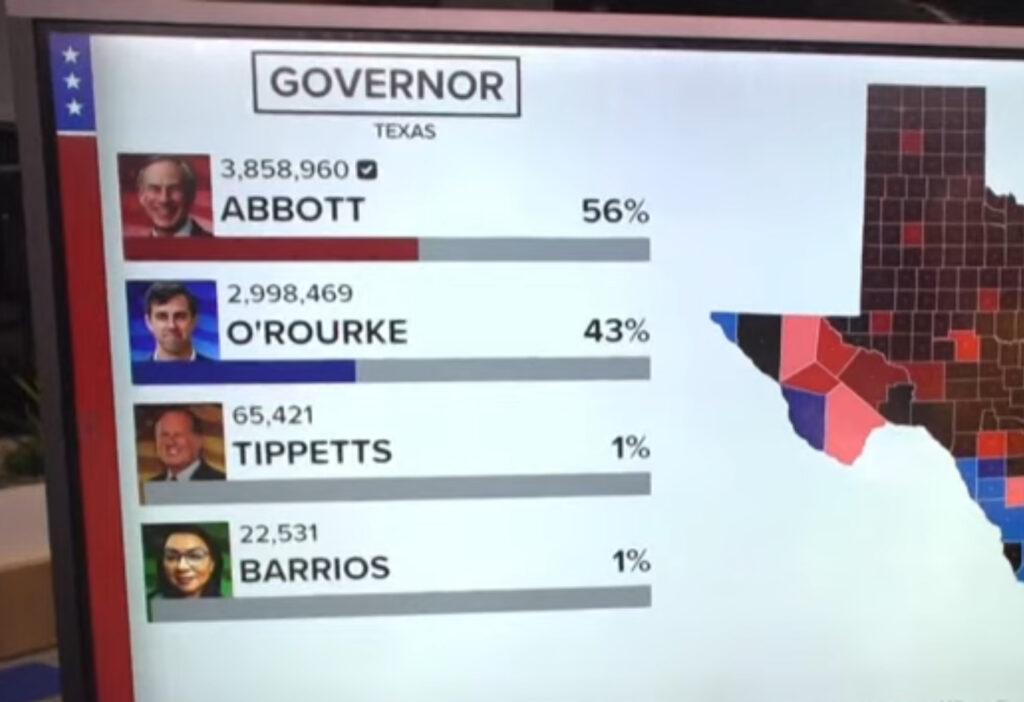On November 8, 2022, Texas held its gubernatorial election, a significant event that was part of the wider series of 36 gubernatorial elections occurring across the United States that year. The timeline leading up to this pivotal election began with a primary on March 1, 2022, followed by a runoff on May 24, 2022, with candidates having until December 13, 2021, to file their candidacies. These elections were crucial as the governor acts as the chief executive officer of a state, holding the distinction of being the sole executive office elected in all 50 states.
Political Landscape Before the 2022 Elections
At the outset of the 2022 elections, the political landscape was divided with 28 states under Republican governors and 22 under Democratic leadership. The broader political context saw 23 states with Republican trifectas, 14 with Democratic trifectas, and 13 with divided government, lacking trifecta control.
Election Results and Candidate Participation
In the Texas gubernatorial race, incumbent Greg Abbott, representing the Republican Party, successfully secured re-election, thereby underscoring a pivotal chapter in the state’s political annals. This election drew a wide array of candidates from various political affiliations, showcasing the diversity of political thought and representation within Texas. Notably, the election featured:
- Greg Abbott (Republican Party): The incumbent governor, who successfully clinched re-election, demonstrating strong support within the state for his policies and leadership. Abbott’s victory was marked by a significant margin, reflecting his widespread appeal across the electorate;
- Beto O’Rourke (Democratic Party): A prominent figure within the Democratic Party, O’Rourke garnered 43.9% of the votes. His campaign focused on addressing key issues such as healthcare, education, and gun control, resonating with a substantial portion of the Texan population;
- Mark Tippetts (Libertarian Party): Representing the Libertarian Party, Tippetts brought forward ideas centered around individual liberty, limited government, and free-market principles. Although his share of the vote was smaller, his candidacy highlighted the presence and perspectives of Libertarian voters in Texas;
- Delilah Barrios (Green Party): As the Green Party candidate, Barrios advocated for environmental sustainability, social justice, and economic equality. Her campaign contributed to the discourse on critical issues facing both Texas and the planet, emphasizing the need for ecological stewardship and fairness.
This election not only underscored the vibrancy of Texas’ political landscape but also highlighted the varied priorities and concerns of its citizens. Through their campaigns, each candidate offered distinct visions for the future of Texas, contributing to a robust democratic process and engaging a broad spectrum of the electorate. The participation of these diverse candidates reaffirmed the state’s commitment to a multifaceted political dialogue, reflecting the complex and dynamic nature of Texan society.
Primaries and Party Nominations
Leading up to the general election, the primaries were a battleground for candidates to secure their party’s nomination. In the Democratic primary, Beto O’Rourke emerged victorious against contenders such as Joy Diaz and Michael Cooper. On the Republican side, Greg Abbott won the primary, defeating challengers like Allen B. West and Donald Huffines. The Green and Libertarian parties also held conventions to select their candidates, with Delilah Barrios and Mark Tippetts winning their respective nominations.
Context and Further Resources
This election cycle was not just about the candidates but also about the broader political dynamics, including the balance of power within state governments and the response to pressing issues like the pandemic. For those seeking more detailed information about the election results, primary elections, and candidate platforms, various resources are available, including detailed election coverage and the opportunity for candidates to connect with voters through surveys.
As Texas navigated through this crucial election, it remained a focal point in the national dialogue about governance, policy, and the direction of the United States at the state level.
